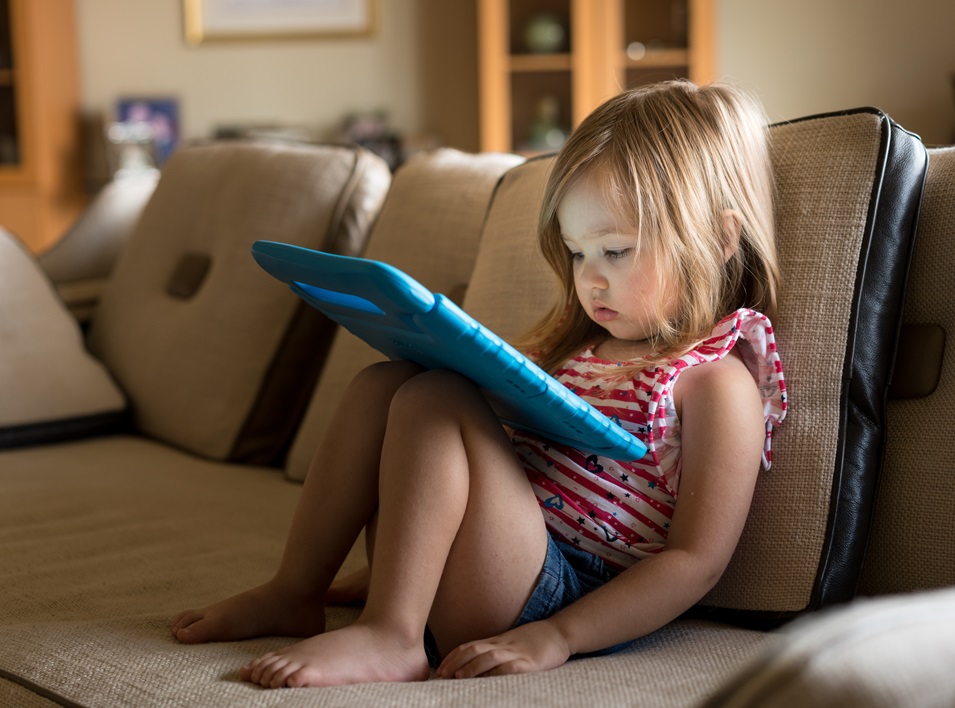Screen Limits: New Research Reveals No One Is Listening
When handheld electronic devices, such as smartphones and tablets, became available, we and our children became part of a grand experiment. And most of us didn’t pause to ponder the potential negative impacts of these devices on our brains and bodies. Too absorbed with the novelty, we went overboard.
A Quick History
It’s been thirty-two years since the smartphone came out and fourteen years since the introduction of the iPad. The first children’s tablet computer, a product of LeapFrog, was launched thirteen years ago. The COVID lockdowns hit in 2019, and screens took over our lives.
Now that a generation or more of kids have grown up immersed in an electronics-dominated world, research reveals we should pause and ponder what we’re doing.
Finally, An Objective Study
A recent Australian study objectively measured young children's screen time. Data was collected independently of the parent’s report. The findings are devastating. Share on XPrevious studies interviewed parents about how much time their babies watched screens. Of course, self-reporting is subjective and prone to bias as parents, feeling guilty, inaccurately reported.
A few highlights of the Australian study revealed that most infants and toddlers aged 6-24 months exceeded the recommended screen time limits established by the government and the World Health Organization (WHO). Those limits are the same in the United States.
Of those in the study, only 11% of 6-month-old babies met the guidelines. Most watched screens an hour and a half per day. Some as much as three hours.
By the age of 24 months, screen exposure increased to over two and a half hours per day on average, and only 2% never watched screens.
Surprisingly, girls watched screens more than boys at six months, but this difference decreased by 24 months.
Are Moms Aware and Don’t Care, or Is It Something Else?
Most mothers I’ve asked have never measured when their baby watches screens. Instead, they estimate it. But to their credit, most feel guilty about their parenting choices when asked.
This guilt is most apparent when their baby has delays in talking and engaging with others. It’s as if they feel the screen-watching and their decision to allow it had something to do with their baby’s developmental delays.
Moms DO Care
Most mothers want to do what’s best for their babies. However, many need help with their own digital habits and life itself. But change is easier than most believe.
Start this week by deciding to make the change.
Yes, that’s the biggest hurdle. Deciding you are going to change your baby’s screen viewing habits.
Don’t Let Your Baby Be Part of…
The Rise in Virtual Autism
Haven’t heard of virtual autism? Please read my previous blog on the topic. Screen time plays a big part in autistic-like behaviors. Removing screens may reverse some symptoms.
Or, The Rise in Sensory-Motor Dysfunction
A recent study published in JAMA Pediatrics and reported by ABC News found that children who watched any television or DVDs at 12 months of age were twice as likely by 36 months to experience “atypical sensory processing” compared to others of that age.
After 18 months of age, each extra hour of screens caused a 20% increase in sensory processing difficulties.
Atypical sensory processing means your baby has either overreactions or underreactions to certain sensations, and those reactions interfere with learning. For example, your baby can’t tolerate touching various things and won’t feed themselves. Maybe your child screams or tantrums in the grocery store because it’s too loud or bright.
Your Baby Doesn’t Need Screens
Let’s end with this fact. Screens are not required. Your baby is better off without access to digital content. Don’t allow your baby to be part of the experiment only to find out later on that the screens harmed your child.
(Photo: Adobe Stock)
Disclaimer: All information presented is general education and is not intended as specific prescriptions for your child. If you have concerns about any aspect of your baby’s development, talk with your doctor. If your child receives any intervention or therapy, this information is not intended to be used without their knowledge.


The Conversation
Thank you for sharing his research. It’s comforting to know that professionals are studying the results of excessive screen time on children today..
You’re welcome. I’m finding most of my readers prefer to see and read the research themselves. It helps parents and grands get a glimpse at the scientifically backed reasons behind the recommendations to limit screen viewing.